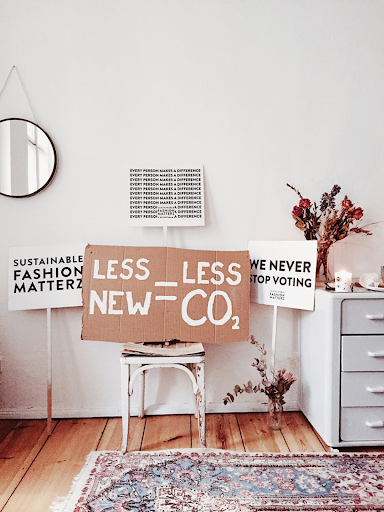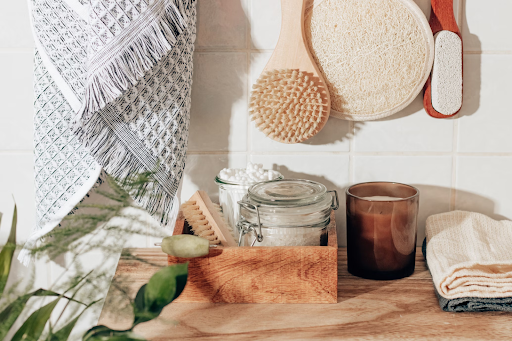
Maintaining a healthy and sustainable home environment doesn’t have to break the bank. In fact, with a little creativity and resourcefulness, you can easily implement cost-effective solutions that promote both budget-friendly housekeeping and a greener lifestyle. By making conscious choices and adopting sustainable practices, you can create a healthier and more eco-friendly living space for yourself and your family. In this article, we will explore four practical ways to maintain your home on a budget while prioritizing the well-being of the environment.
Quality Roofing Solutions: Long-Term Investments
Investing in quality roofing solutions is a smart long-term strategy that not only protects your home but also contributes to a more sustainable living environment. While it may require a larger upfront investment, opting for high-quality roofing materials can save you money in the long run and reduce your environmental impact.
Start by choosing roofing materials that are durable and have a long lifespan. With the help of expert advice from equityroofs.com/ and other reputable roofing professionals, you can explore options such as metal roofing, clay tiles, or slate. These materials are known for their exceptional durability and can withstand harsh weather conditions.
Additionally, consider the insulation properties of your roof. Proper insulation helps maintain a consistent indoor temperature, reducing the need for excessive heating or cooling. This not only lowers your energy consumption but also decreases greenhouse gas emissions associated with heating and cooling systems. Insulating your roof can also save you money on energy bills by improving the overall energy efficiency of your home.
Water Conservation: A Sustainable Splash
Water is a precious resource, and conserving it should be a top priority in every household. There are several simple yet effective ways to practice water conservation and reduce water bills. Start by fixing leaks promptly, as even a small drip can waste a significant amount of water over time. Regularly check faucets, toilets, and pipes for leaks, and repair them as soon as possible.
Installing low-flow showerheads and faucet aerators is another practical water-saving solution. These devices reduce the flow of water without sacrificing comfort, resulting in lower water usage. They work by mixing air with the water stream, creating the illusion of a strong flow while using less water.
Collecting rainwater is another sustainable practice that can save you money on water bills. Set up rain barrels in your garden or backyard to collect rainwater runoff from your roof. This collected water can be used for various outdoor purposes such as watering plants, cleaning outdoor surfaces, or even for non-potable indoor use.
Waste Management: Reduce, Reuse, Recycle
Managing waste effectively not only reduces the strain on landfills but also helps save money. Embracing the “3 R’s” of waste management—reduce, reuse, and recycle—can make a significant difference. Start by reducing waste at the source. Avoid single-use items such as plastic bags and disposable utensils. Instead, opt for reusable alternatives like cloth shopping bags, stainless steel water bottles, and eco-friendly food containers.
Reusing items is another great way to reduce waste and save money. Get creative with repurposing household items. For example, glass jars can be used as storage containers and old clothing can be transformed into cleaning rags.
Recycling plays a crucial role in waste management. Set up a recycling system in your home, and make sure you are familiar with what can and cannot be recycled in your area. Rinse out containers before recycling them and flatten cardboard boxes to save space. Educate yourself and your family about proper recycling practices, ensuring that recyclable materials are diverted from the waste stream and given a chance to be repurposed.
Green Cleaning: Healthy Homes, Healthy Planet
Many commercial cleaning products contain harmful chemicals that can harm both the environment and your health. Embracing green cleaning alternatives is not only better for the planet but also cost-effective and safe for your family. You can make your own natural and effective cleaners using simple ingredients like vinegar, baking soda, and lemon juice.
Vinegar, with its acidic properties, is an excellent all-purpose cleaner. Dilute it with water and use it for cleaning countertops, floors, and glass surfaces. Baking soda is a gentle abrasive that can be used to scrub surfaces and remove stains. Lemon juice works well for cutting through grease and leaving a fresh scent. By using these basic ingredients, you can create a wide range of cleaning solutions that are both effective and environmentally friendly.
Investing in reusable cleaning tools can also contribute to a greener and more budget-friendly approach. Microfiber cloths or mop pads, for example, can be used repeatedly and are highly effective at capturing dirt and dust. They can be easily washed and reused, reducing the need for disposable cleaning wipes.
Another way to save money and reduce waste is by making your laundry detergent. Traditional laundry detergents can be expensive and often contain chemicals that are harmful to the environment. However, with a few simple ingredients like washing soda, borax, and soap flakes, you can create a laundry detergent that is not only eco-friendly but also gentle on your clothes.

Maintaining a healthy and sustainable home environment doesn’t have to be a financial burden. By implementing these six budget-friendly practices, you can contribute to a healthier planet while also enjoying the benefits of cost savings. These are all practical and achievable steps towards a greener and more environmentally conscious lifestyle. So, let’s embrace these sustainable solutions and create a better future for ourselves and future generations, one budget-friendly action at a time.
Interesting Related Article: “Best Glass Water Bottles for Eco-Friendly Hydration in 2023 “

